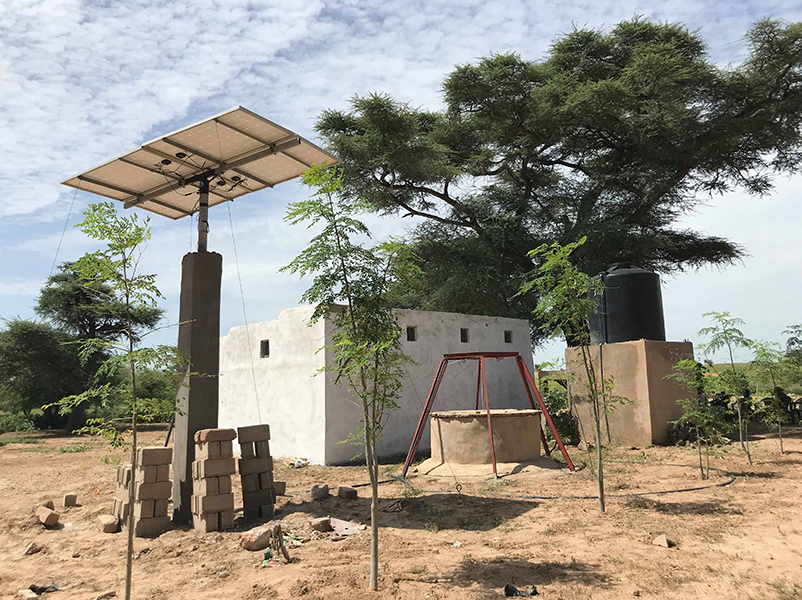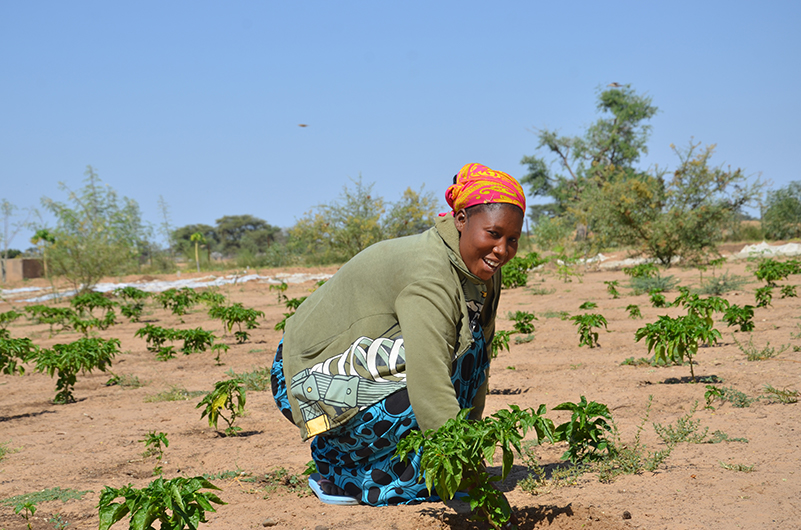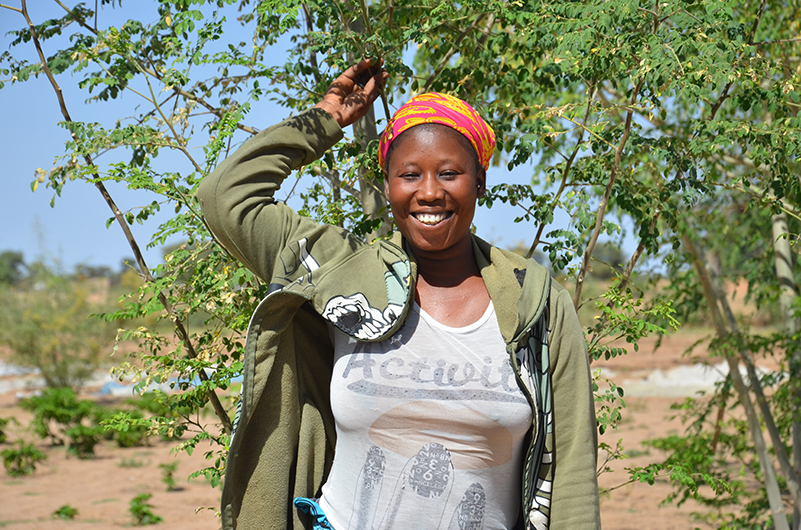Here at CREATE!, we value a participatory approach to our projects so that community members can take the power of change into their own hands. We believe that to truly create sustainable development, the change needs to come from within the village at the grassroots level. We aim to inspire a pay-it-forward type of mindset between rural communities so that they may support each other. This will spread sustainable development throughout rural Senegal.
Sustainable Development in the Village of Wereyane
Miles away from the nearest town, located right off of a sandy dirt road, you’ll see a tall solar panel beyond a metal gate. After the solar panel is rehabilitated well along with a sizeable elevated reservoir for storing water, partly shaded by a large tree often used for community meetings. Here is the village of Wereyane’s community garden. Right now, temperatures are hovering around 100 degrees late in the day. The heat slows down activities in the afternoons and many women will rest before resuming their work in the community garden during the cooler evenings.

Wereyane’s solar-powered water pumping system and reservoir.
Spreading Trees Around Rural Senegal
Ngone Signane, a mother of two in Wereyane, talks about a time when they had couldn’t grow anything during the dry season. “Since we live in the northern area, it gets very hot during the dry season when there are not many trees.” Through CREATE!’s annual tree-planting campaign, Ngone and other women in Wereyane plant trees every year during the rainy season.
Many of the trees are first grown in a nursery in little black sachets. Next, when the trees are old enough, they are planted in the ground during the rainy season so that they can develop strong roots before the rains cease. Wereyane plants a number of trees for fruits, nuts, firewood, medicines, improving the soil, and more. They will even donate the extra trees to other CREATE! partner communities. “There are many people who come here to ask for trees,” Ngone explains. “We can say we are helping to fight against climate change in our environment.”
Passing on Improved Cookstove Knowledge to the Next Generation
By planting trees every year, Wereyane is replacing the wood that they use and more to create a sustainable environment. “People always need wood for cooking or other things,” Ngone tells us. “Our children will also need it, so we must plant trees for them.” Along with replenishing the trees around Wereyane, Ngone and her community built CREATE!’s improved cookstoves in their homes. These improved cookstoves use less firewood than traditional open fires.
Improved cookstoves from free, locally available materials such as clay, sand, dry grass, and water. CREATE!‘s technicians hold community-wide training where they demonstrate how to build an improved cookstove. Community members then make these cookstoves in their own homes and spread the knowledge to their friends, family, and other villages nearby. “My mother taught me to build an improved cookstove,” Ngone explains. “I want to teach other people how to build it.”

Ngone cares for the pepper plants in Wereyane’s community garden.
Cooking with Fresh, Home-Grown Produce
By using the improved cookstove, women are using less firewood than what they would typically use for a traditional open fire. Ngone says she used to cook with 10 pieces of firewood, and now only uses four pieces per meal! With each meal, Ngone cooks a variety of vegetables from Wereyane’s cooperative community garden. She and other women in the village maintain this garden throughout the year. When asked what her children’s favorite vegetable is from the garden, she responded, “My children like the eggplant, and I like to make a sauce with the vegetables.”
Ngone knows that her children will grow up watching her build a better life for them in Wereyane. She is taking care of both her family, the environment, and sharing with surrounding villages because passing on knowledge can be the foundation for sustainable development. “I hope that my children will live in good conditions,” Ngone says. “I advise our future children to take care of the garden and all of the other activities.”

